PROFESSOR ATUL K. SHAH www.atulkshah.co.uk
Globally renowned expert advisor and broadcaster on culture, accounting, finance, business ethics, holistic education and leadership
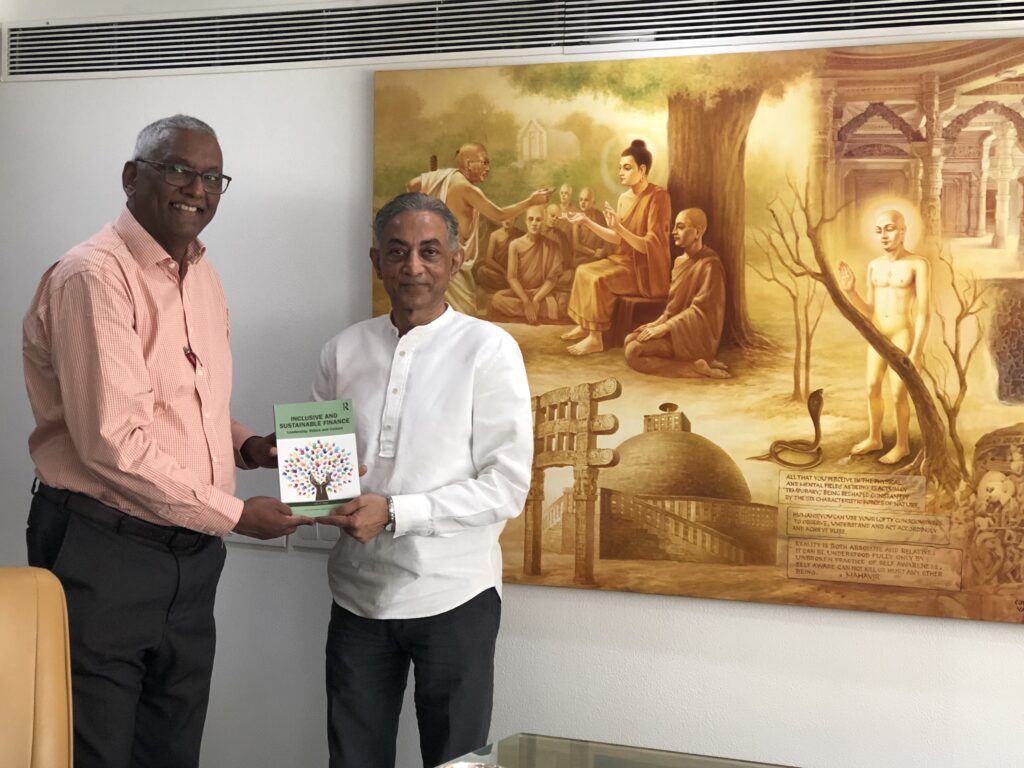
With a population of 1.4 billion, and one of the greatest diversities of cultures, language and faiths in the world, India is a unique testing ground for new research on ethical finance. I spent the month of January 2023 travelling to various Universities and sharing the insights from my revolutionary and paradigm-shifting (not my words) new book ‘Inclusive and Sustainable Finance – Leadership, Ethics and Culture’ published globally by the Academic Publishers Routledge.
The truth is that some of the oldest Universities of the world originate from India. The research and intellectual tradition of India is very deep and scholars admit that they are only scratching the surface of this vast reservoir of philosophical and scientific enquiry. 25% of global trade was centred around India in the eighteenth century, and today it has risen again from the piracy of empire as a rising power in the world economy. The British called the Indians ‘illiterate heathens who were uncivilised’. In my book, I write a lot about the Dharmic wisdom of India, and how its understanding of the interdependence of all life, predates the West by three thousand years. Even today it is a predominantly vegetarian country. Whilst the media emphasise religious tensions, the real beauty is the religious harmony and tolerance of India. Mumbai, with a population of 22 million, is one of the safest cities on the planet.
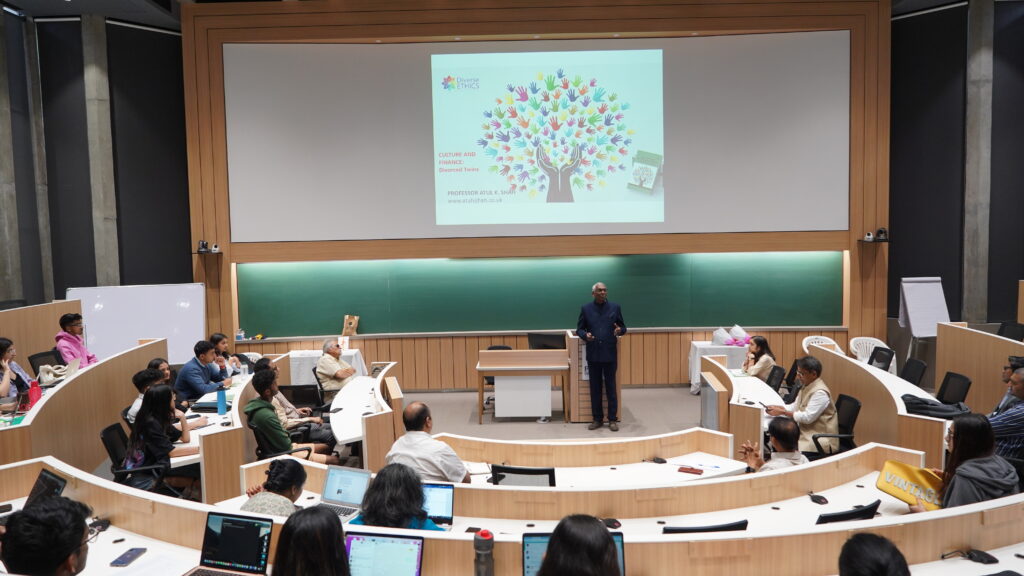
I spoke at various Universities – Flame, Jindal and Ahmedabad. At Flame, Tejas Patani was a gracious host and Professor Devendra Jain organised a conference around my book, and the discussant Professor Yugank Goyal explained how timely and pertinent the thesis was, and how well it reflected the wisdom of India, articulated flawlessly in the English language. At Jindal, the Dean of the Business School, Professor Mayank Dhaundhiyal gave me a special award for outstanding research contribution. At Ahmedabad University, Professor Sudhir Pandey hosted my research seminar, and the faculty were warmly enlightened by the findings. Professor Snehal Awate at IIT Mumbai was a key promoter of the research and enthusiast about its findings.
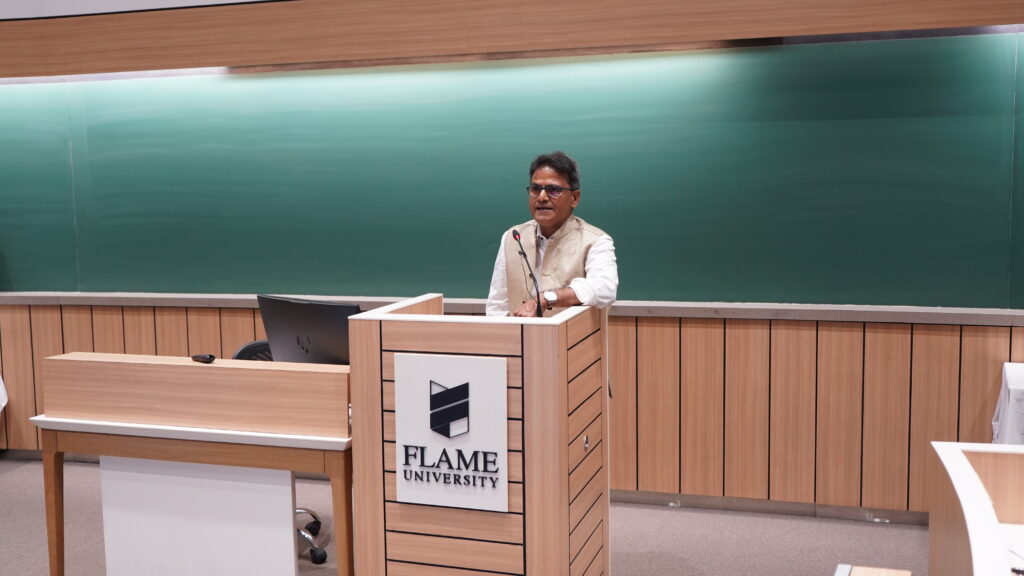
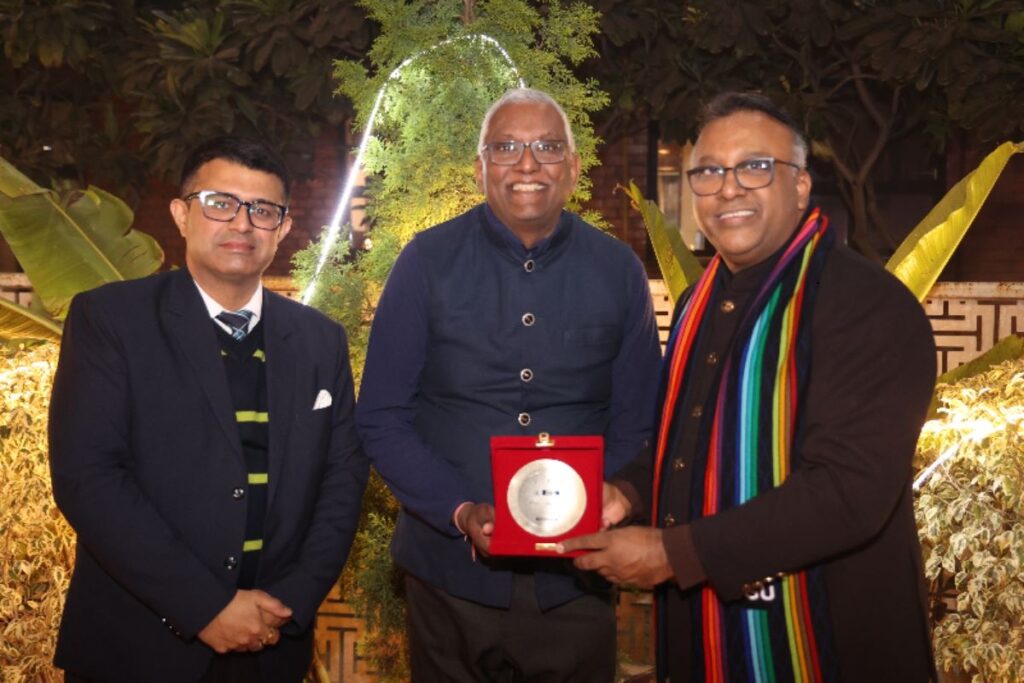
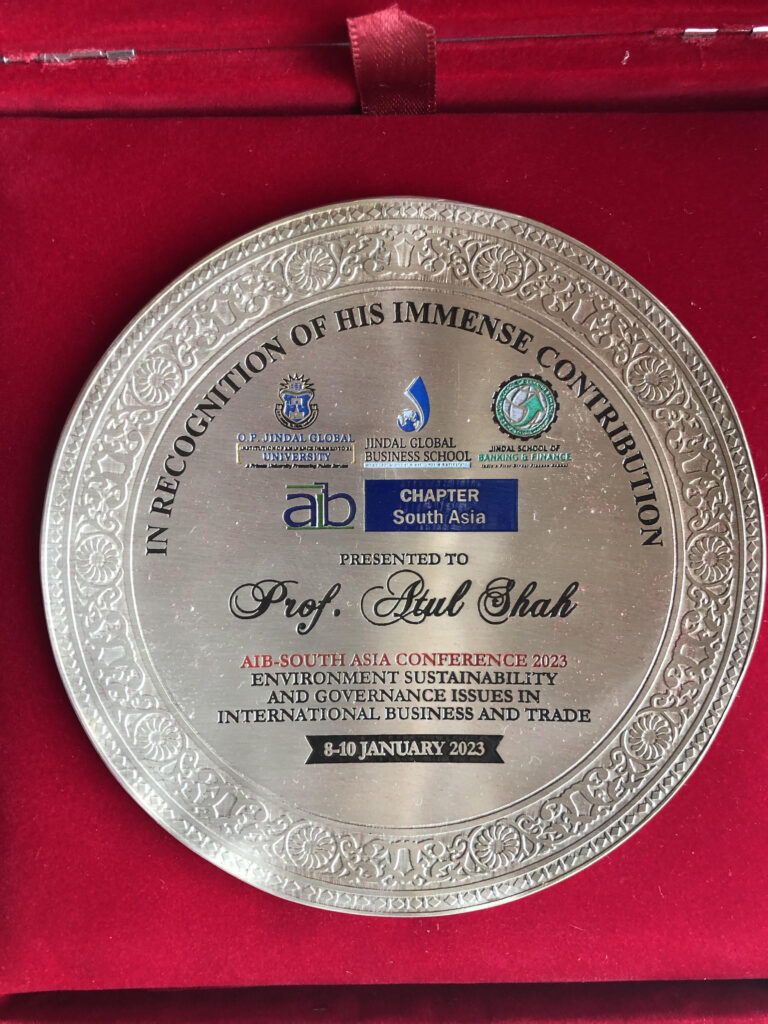
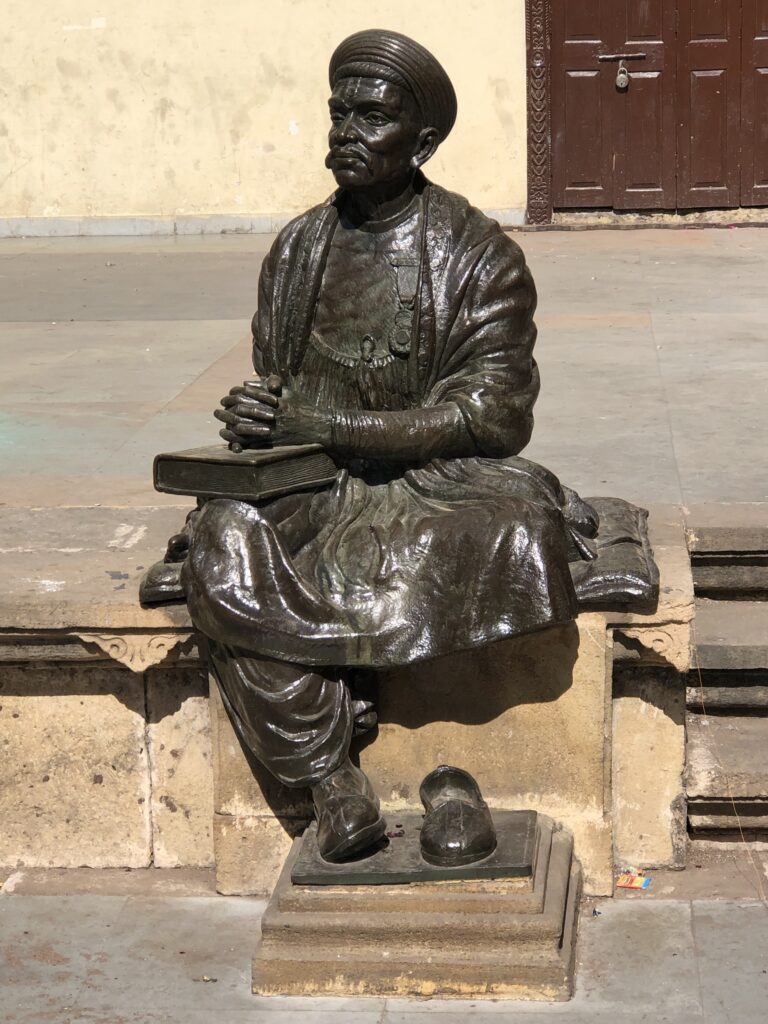

I also had the opportunity to meet some of the outstanding finance leaders I had interviewed for my research – Dr Abhay Firodia and Mr Vallabh Bhanshali. They offered excellent warmth and hospitality and their character and conduct reflected the science espoused in the book – humble, generous and disciplined, in a purposeful way. Their warmth and conduct spoke their values. They are also renown philanthropists in India, with vast legacies and consider their duty to give back to society. I spoke in my TV interview for the Economic Times about the huge opportunity India has given its upcoming leadership of the G20 to give my book to world leaders and policy makers, as India’s Dharmic finance wisdom is its unique gift to the world. The Conversation, a very prestigious research media, published a summary of the book.
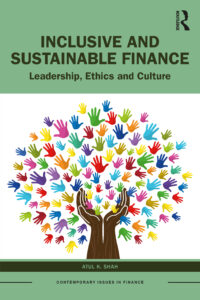
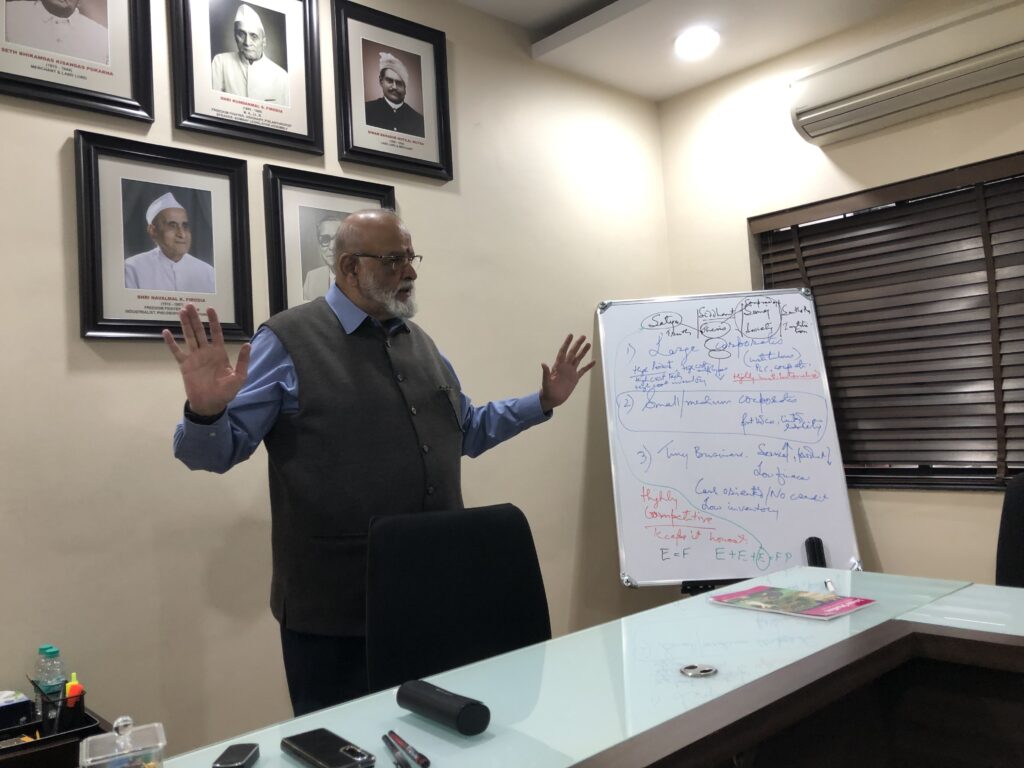
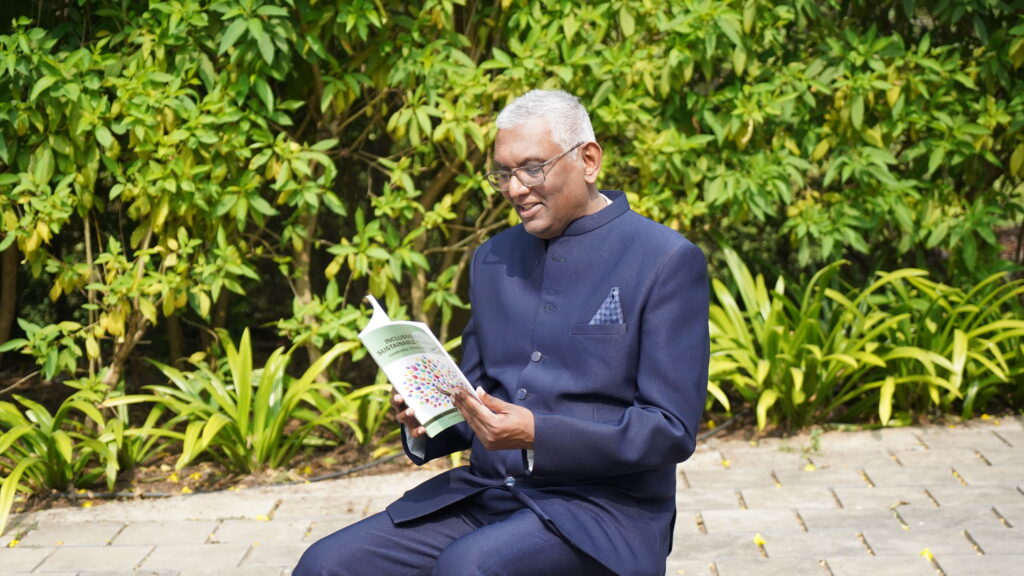
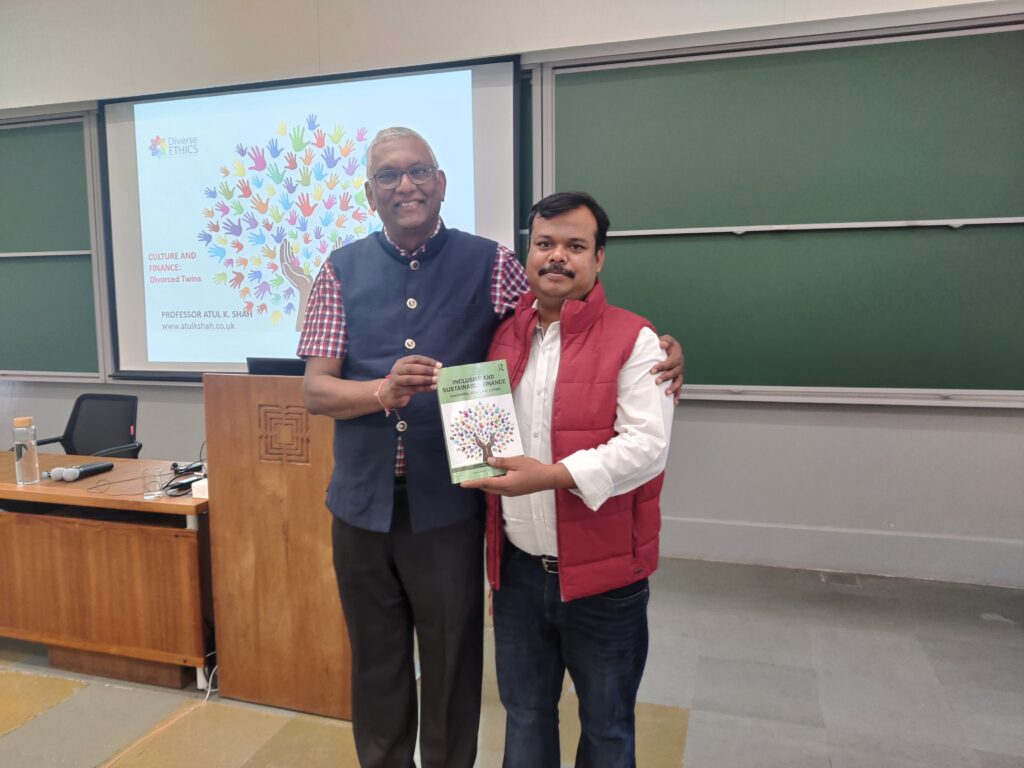
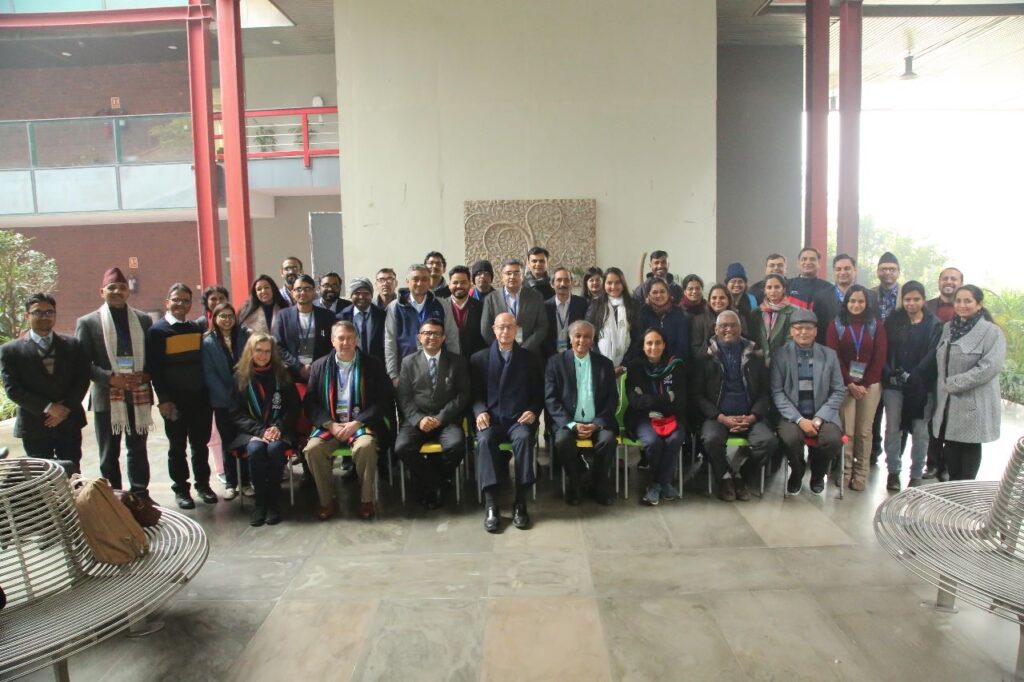
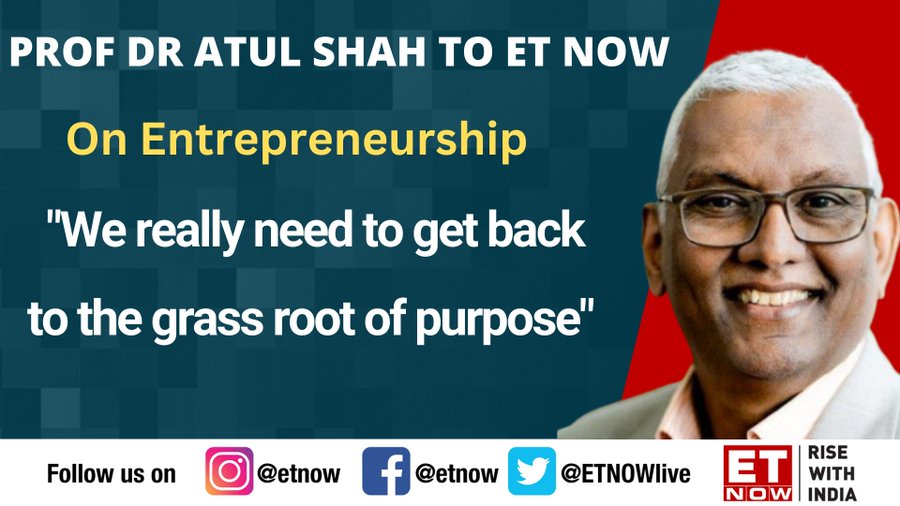
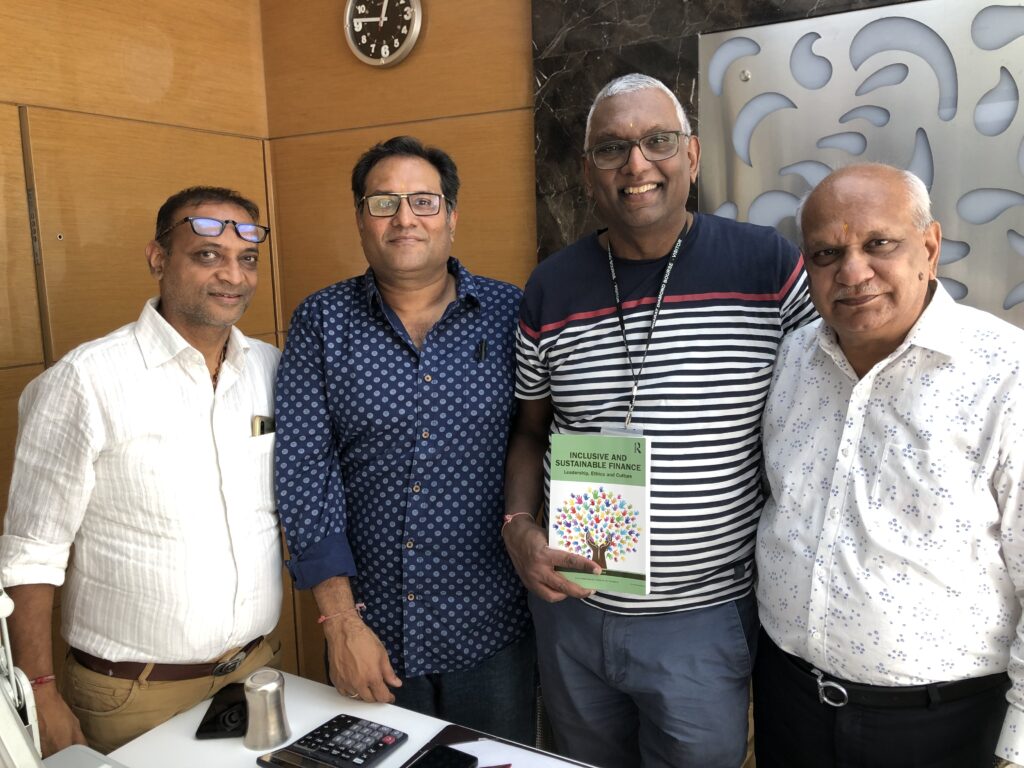
NEXT STEPS
- This research and book gives everyone an opportunity to transform their finance curriculum and develop a new core finance module which is very different from what is being taught at present. It will be very popular with students as they will be able to connect with their lived stories and experiences, and remove the subject from the anonymity and distance it has created from human experience. In India, we are talking to various Universities to partner in this vision and there is good core interest.
- Students from Diverse Cultures should be encouraged to read this research and findings as it will really empower them. It is my aim to make this book pdf available for free and accessible to all students. There is a cost to this, and I am seeking sponsors who are willing and ready to help share their wisdom with the world.
- Leadership and Diversity in Finance is a virtually undiscussed and very poorly researched subject. I need your help in moving this up the agenda – at present, it is a big part of the problem and Business Schools are reluctant to talk about it. This needs to change urgently.
